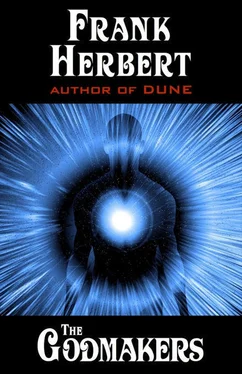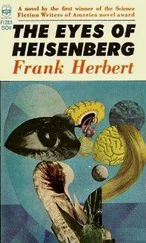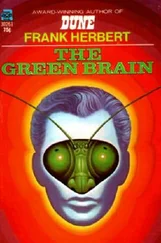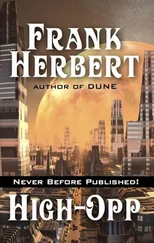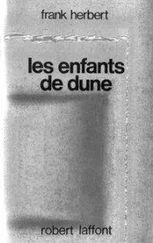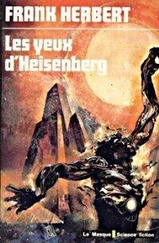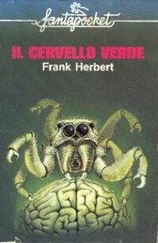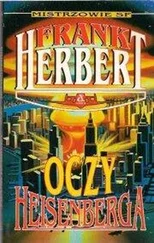“Yes! I’ve looked!”
“Touchy, aren’t we?”
The road took them directly toward a river, crossed it on a crude wooden bridge with stone abutments.
Stetson pulled to a stop on the far side of the bridge, stared at the twin lines of a narrow cart track that wound along the riverbank.
Again they got under way, heading toward another ridge.
There were stiled fences beyond the ditches which flanked their road. “Why do they have fences?” Stetson asked.
“To mark their boundaries.”
“Why stiles?”
“To keep out the swamp deer,” Orne said. “It’s reasonable.”
“Stiled fences for boundaries and swamp deer,” Stetson said. “How big are the swamp deer?”
“Lots of evidence—books, stuffed specimens and the like—to show the biggest of them get about half a meter high.”
“And wild.”
“Very wild.”
“Not a very good suspect as a cavalry animal,” Stetson said.
“Definitely ruled out.”
“That means you looked into it.”
“Thoroughly.”
The I-A man pursed his lips in thought, then: “Let’s us go over that about their government again.”
Orne raised his voice above the whine of the turbine as the buggy began to labor in the climb up to another ridge. “What do you mean?”
“That hereditary business.”
“Council membership seems to be passed along on an eldest son basis.”
“Seems to be?” Stetson maneuvered the buggy over a steep rise and onto a road that turned right down the crest of the ridge.
Orne shrugged. “Well, they gave me some hanky-patanky about an elective procedure in case the eldest son dies and there’s no other male heir.”
“But definitely patriarchal?”
“Definitely.”
“What games do these people play?”
“The children have tops, slingshots, toy carts—but no war toys that I can recognize.”
“And the adults?”
“Their games?”
“Yes. I’ve seen one that’s played by sixteen men in teams of four. They use a square field about fifty meters to the side. It has smooth diagonal ditches crossing from corner to corner to corner. Four men take stations at each corner and rotate turns at play with…”
“Let me guess,” Stetson said. “They crawl ferociously at each other along those ditches!”
“Very funny! What they do is they use two heavy balls pierced for holding with the fingers. One ball’s green and the other’s yellow. Yellow ball goes first; it’s rolled along the diagonal ditch. The green ball’s supposed to be thrown in such a way that it smacks the yellow ball at the intersection.”
“And it never hits the yellow ball.”
“Sometimes it does. Speed’s erratic.”
“And a great huzzah goes up when they hit,” Stetson said.
“No audience,” Orne said.
“None at all?”
“None that…”
“I’ve seen,” Stetson chimed in. “Anyway, it appears to be a peaceful game. Are they good at it?”
“Remarkably clumsy, I thought. But they seem to enjoy it. Come to think of it, that game’s one of the few things I’ve ever seen them come close to enjoying.”
“You’re a frustrated missionary,” Stetson said. “People aren’t having fun; you want to jump in and organize games.”
“War games,” Orne said. “Have you thought of that one?”
“Huh?” Stetson took his gaze off the road momentarily. The buggy swerved, bumped along the road’s edge. He jerked his attention back to driving.
“What if some smart R&R type set himself up as emperor on his planet?” Orne asked. “He could start his own dynasty. First thing you’d know about it would be when the bombs started dropping or people started dying from causes unknown .”
“That’s the I-A’s personal nightmare,” Stetson said. He fell silent.
The sun climbed higher as the ridge road wound on past rocky embankments, far vistas of farmlands, passages of sparse bushes and squat, bulbous trees.
Once, Stetson asked: “What about Hamal’s religion?”
“I looked for clues there,” Orne said. “They pray to the Overgod of Amel, monotheistic. There was a book of common prayers in the Tritsahin lifeboat. They have a few wandering hermits, but as near as I can make out the hermits are spies for the Council. About three hundred years ago, a holy man began preaching a vision of the Overgod. There’s a cult of this visionary now, but no evidence of religious friction.”
“Sweetness and light,” Stetson said. “A priesthood?”
“Religious leadership stems from the Council. They appoint votaries called ‘Keepers of the Prayer.’ Nine-day cycle of religious observance seems to be the pattern. There’s a complex variation on this involving holy days, something called ‘Relief Days’ and they observe the anniversary of the date when the visionary, name of Arune , was transported bodily into heaven. The Priests of Amel have sent a Temporary Dispensation Missive and you can expect the usual conferences, I’m sure, with a subsequent pronouncement proving that the Overgod watches over the least of His creatures.”
“Do I detect a note of sarcasm in your voice?” Stetson asked.
“You detect a note of caution,” Orne said. “I’m a native of Chargon. Our prophet was Mahmud, who was duly verified by Amel’s priesthood. Where Amel is concerned, I walk softly.”
“The wise man prays once a week and studies Psi every day,” Stetson murmured.
“What?”
“Nothing.”
Their road dipped now into a shallow depression between hills, crossed a small brook and slanted up to a new ridge where it swung left along the crest. They could see another village on high ground in the distance. When they were close enough to make out the green and yellow flag atop the government building, Stetson pulled to a stop, opened his window, shut off the engine. The turbine rotor keened downscale to silence. With the window open, the air conditioner off, they felt the oppressive heat of the day.
Sweat began pouring off Orne, settling into a soggy puddle where his bottom touched the seat’s plastic depression.
“No aircraft on Hamal?” Stetson asked.
“Not a sign of them.”
“Strange.”
“Not really. They have a superstition about the dangers of leaving the ground. A result of their narrow escape from space, no doubt. They’re just a bit antitechnology—except in the Council where they’re more sophisticated about man’s toolmaking propensity.”
“Black-gang syndrome,” Stetson muttered.
“What?”
“Technology is dangerous to sapient creatures,” Stetson said. “Lots of cultures and subcultures believe this. There are times when I believe it myself.”
“Why’ve we stopped here?” Orne asked.
“We’re waiting.”
“For what?”
“For something to happen,” Stetson said. “How do the Hamalites feel about peace?”
“They think it’s wonderful. The Council is delighted by the peaceful activities of R&R. The common citizenry has a response pattern indicating a rote answer. They say: ‘Men find peace in the Overgod.’ It’s all very consistent.”
“Orne, can you tell me why you punched the panic button?” Stetson demanded.
Orne’s mouth worked soundlessly, then: “I told you!”
“But what set you off?” Stetson asked. “What straw grounded the blinking rocket?”
Orne swallowed, spoke in a low voice: “A couple of things. For one, they held a banquet to…”
“Who held a banquet?”
“The Council. They held a banquet to honor me. And… uh…”
“They served froolap ,” Stetson said.
“Do you want to hear this or don’t you?”
“Dear boy, I’m all ears.”
Orne glanced pointedly at Stetson’s ears, said: “I hadn’t noticed.” Then: “Well, the Council banquet featured a stew of porjo tails that…”
Читать дальше
